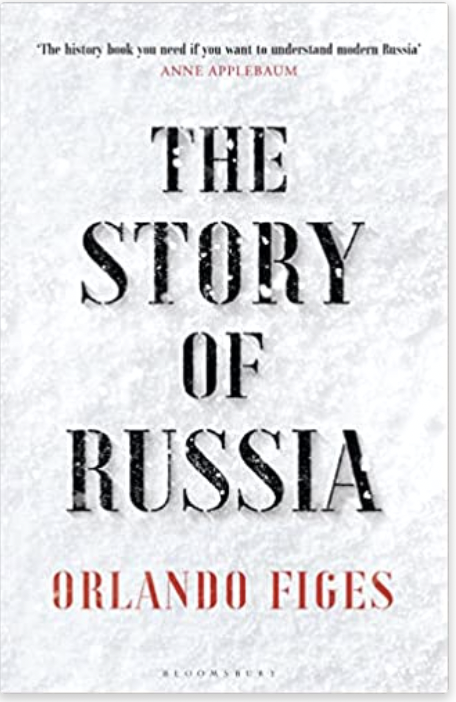
How Russia’s future will be shaped by its past


No other country is so divided over its own past as Russia and how the Russians came to tell their 1000-year-old story and reinvent it as they went along, are vital aspects of their history, their culture, and beliefs. To grasp what Putin’s regime means for Russia and the world – we need to unravel the ideas and meanings of that history.
Professional historian Orlando Figes, who has witnessed the critical moments in the dissolution of the Soviet Empire, asks in the Story of Russia, “How does the story of Russia end? How far will the country’s future be shaped by the past?”
His starting point is the erection in 2016 of the monument to Grand Prince Vladimir, the late 10-century ruler of the Kremlin. President Vladimir Putin claimed that Russians, Ukrainians, and Belarusians were originally one nation, heirs to the Rus, and the basis for his neo-imperial idea of the Russian World ( Russkii mir) and for unleashing a full-scale war against Ukraine.
Figes implies understanding how Putin’s rule relates to the long-term patterns of Russian history. Focusing on Kleptocracy, the mafia state or the obsessions of the top man is not sufficient.
The Story of Russia tracks epochal moments – the Rus, the rise of Muscovy, the formative power of Mongol rule for the establishment of statehood, and the manifold of the St Petersburg empire and sets distinctive accents through rich details and meaningful anecdotes.
Figes explores the emergence of a Russian-dominated Soviet patriotism under Stalin, culminating in the victory over Hitler.
The Byzantine tradition of the Basileus combines with that of the Khan and the autocrat – the image of the tsar with the personality cult of the party leader.
This compact but powerful tradition seems to condemn Russia to an eternal return to the past. After the end of the Tsarist empire, it re-emerged as USSR: after the disintegration of the Soviet Union, as Putin’s Russia.
Figes believes “in many ways, the country appears to be trapped in a repeating cycle of its history, twice in the twentieth century, in 1917 and 1991, the autocratic state has broken down, only to be reborn in a different form.”
In a recurring pattern, those forces unleashed by the collapse of state authority proved too weak to sustain a democratic government. Systemic asymmetry in the relationship between autocratic rule and society, “Isolated from the West, Russia will be forced to pivot east, a turn accelerated by the war and welcomed by a number of Kremlin’s ideologists, who believe that Russia’s future lies in a Eurasian bloc, opposed to Western liberal values and US global power, with China as its main ally” write Figes.
In his view, Russia’s isolation is mainly a result of a lack of understanding and goodwill in the west – “Russia wanted to be part of Europe, to be treated with respect”. Instead, it was rejected by Western leaders who took advantage of Russian weakness to diminish it. An opportunity to end a historical cycle of misunderstanding and antagonisms was missed, creating the basis on which Putin “built his anti-Western ideology”.
Figes writes about Russia’s century-long efforts to “catch up” with the west, which often ended in frustrations, anti-western feelings, and an inferiority complex, yet he overestimates the impact the west could have on the largest country on earth. The successful transformation of the vast Soviet system depends on the potential and capabilities of Russia.
Now the Russians themselves can make Russia find a way out of the dead end of the anachronistic idea of imperial reconstruction.
The Story of Russia by Orlando Figes, Bloomsbury £25, 352 pages.
